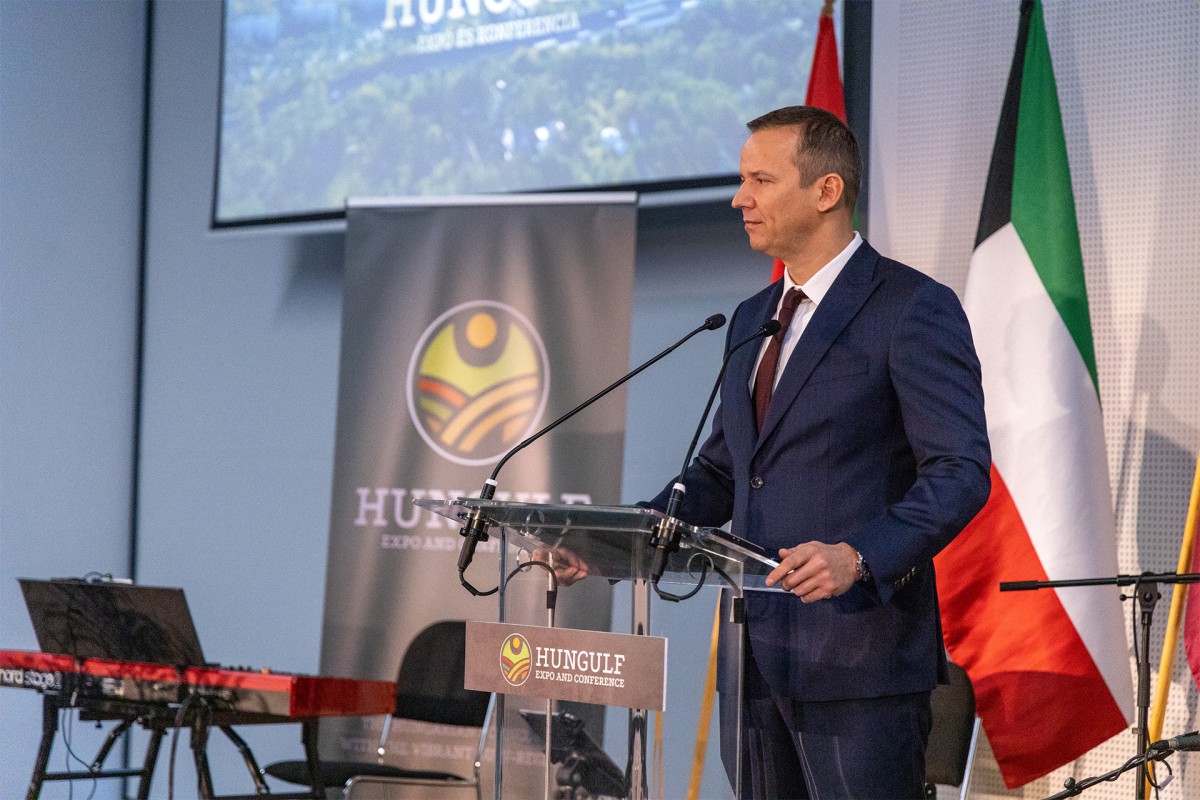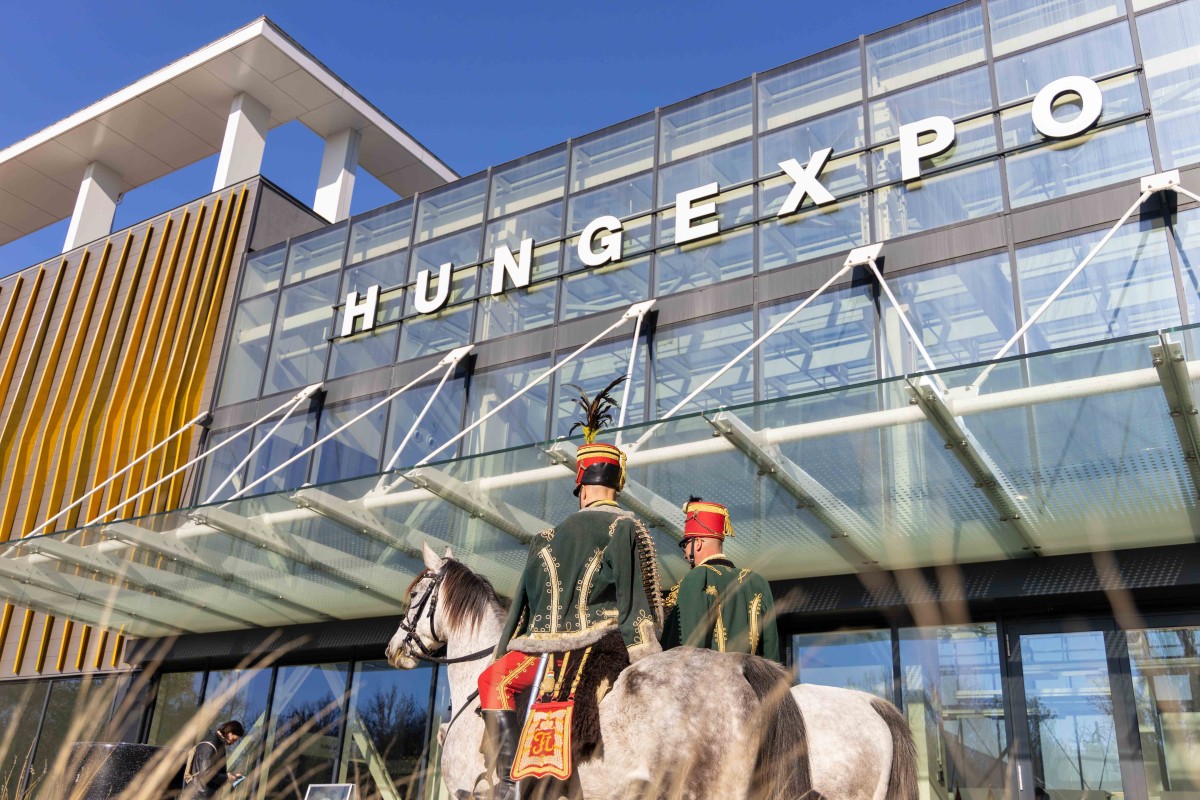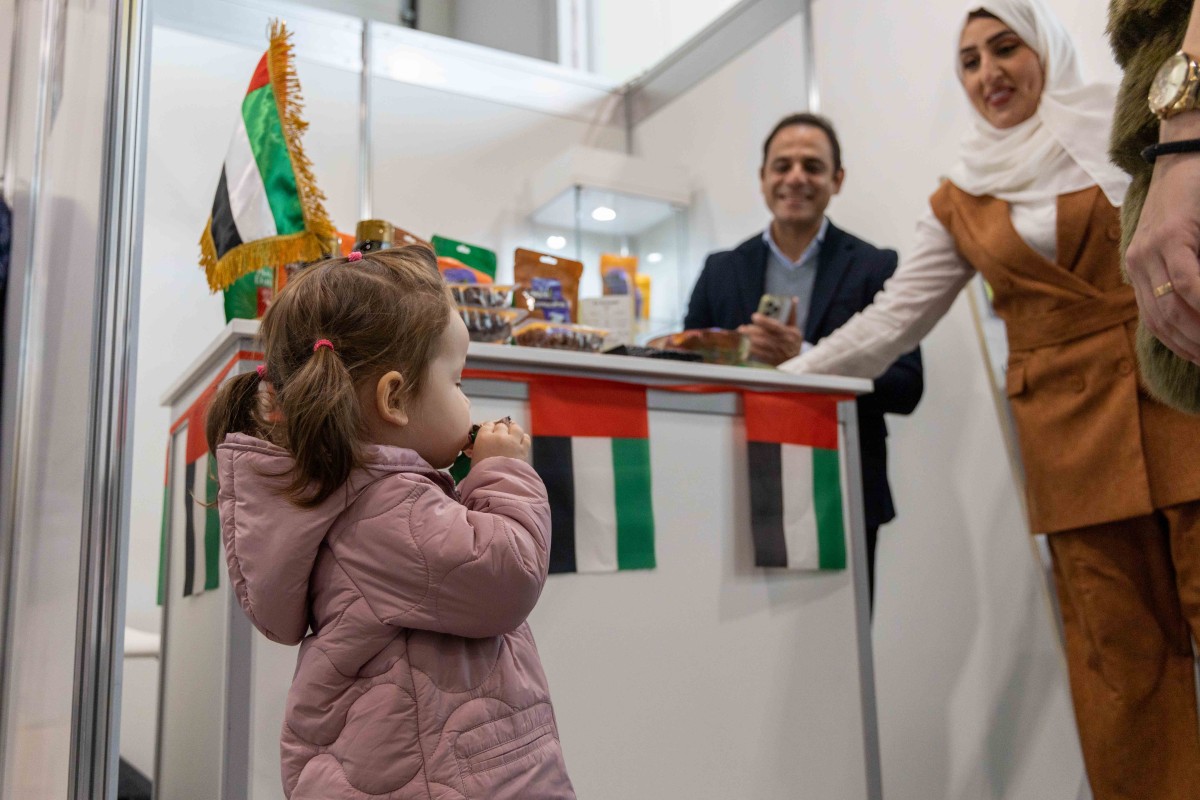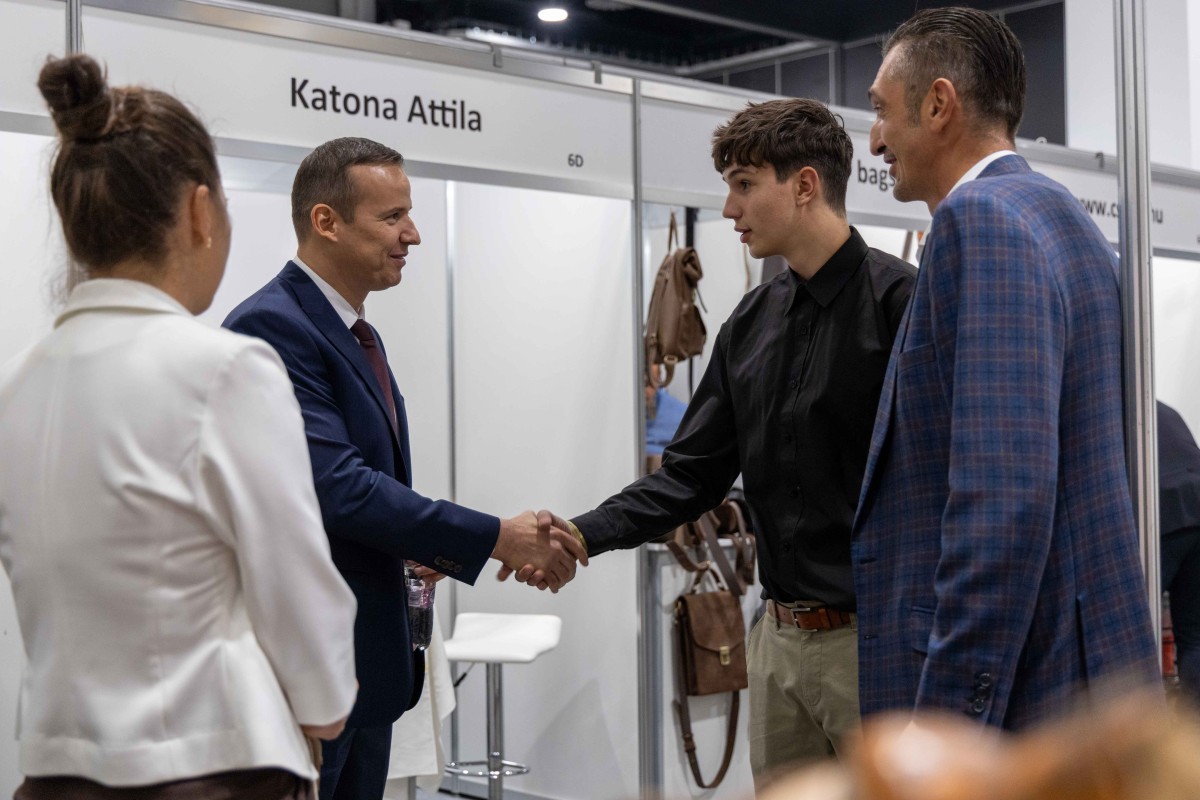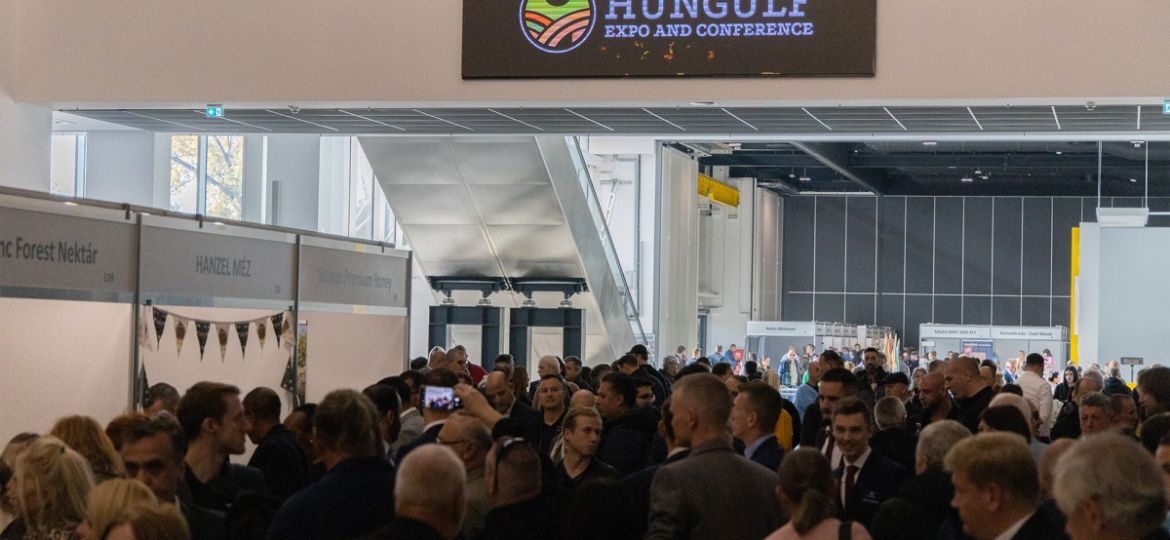
A historic initiative is underway, as Mi Hazánk links representatives of potential export markets with domestic producers. Never before has a parliamentary party done such a thing, said László Toroczkai at the opening of the first Hungulf conference and fair on Saturday. The President of Our Homeland stressed that there are many opportunities in the world outside the European Union that can lay the foundations for Hungary to create its own strong, independent economy. László Toroczkai's party launched Hungulf with the aim of promoting the export of premium domestic products to Gulf countries. At the first event, around 100 producers and entrepreneurs had the opportunity to showcase their products.
László Toroczkai, as Vice President of the Hungarian-Gulf Friendship Section of the Inter-Parliamentary Union, attended the 146th General Assembly of the world organization in Bahrain a year and a half ago. He later visited Saudi Arabia and the United Arab Emirates. It was these visits that gave rise to the idea of the Hungulf Expo and Conference, which was organised by Our Homeland and hosted by the Gulf Cooperation Council countries (Kuwait, Bahrain, Qatar, UAE, Oman, Saudi Arabia).
I saw an amazing development of wealth and respect for tradition in these countries, and I understood the basis of their prosperity. That the secret of development is strong, well-organised leadership
- said László Toroczkai.
The party president stressed that we Hungarians also have something to be proud of: the diligence and knowledge of Hungarians, their creativity, the richly fertile land on which we can produce healthy, juicy, GMO-free foodstuffs, are all values that are in demand in the world. But to export, we need public support.
Relations between Hungary and the Gulf countries should be built on mutual respect and mutual benefit, as both sides can benefit from these relations
- said László Toroczkai.
István Apáti, Member of Parliament, Chairman of the Entrepreneurship Development Committee of the National Assembly, drew attention to the fruit-growing potential of Hungary. In particular, he highlighted apples, sour cherries and walnuts, of which Hungary's produce is of premium quality.
Apple is grown on 80 thousand hectares in Hungary today. Hungary is the third largest producer of cherry preserves in Europe, with a 70 per cent share of frozen sour cherries, and the nuts produced here are of absolute premium quality in every respect.
He noted that Hungarian walnuts, for example, were even listed on the US stock exchange in the 1990s.
According to István Apáti, Szabolcs-Szatmár Bereg county could be the country's Garden of Eden, but we are far from exploiting its potential. He also highlighted Northern and Central Hungary, as well as Southern Transdanubia, where high quality, exportable fruit is grown.
Our priority is to find new markets to reduce dependence on EU subsidies
- István Apáti underlined.
Dávid Dócs, member of the Agriculture Committee and the Hungarikum Committee of the National Assembly, gave a historical overview of Hungarian agriculture and its situation on the world market. In his speech, he stressed that our premium products and Hungaricums can be competitive in the whole world. In particular, he highlighted Tokaj wines, Hungarian grey cattle, Hungarian horse and dog breeds, with which we have been present on foreign markets in previous centuries.
Hungary was already a major export power in the Middle Ages. It supplied high-quality, premium food to many countries in Europe. We exported grey cattle to Italy and Germany, and our excellent Tokaj wines to the Polish royal and noble courts. At one time Budapest was the second largest milling centre in the world and we even exported to Brazil. We were able to sell about 70 percent of our sugar beet abroad
- reminded Dávid Dócs.
He added that Hungarian food is now competing less in quantity but more in quality with that of larger countries.
Today, 70 percent of Hungarian food exports go to the 27 countries of the European Union. There are also serious risks. We must look outside the EU for solutions to the difficulties facing European agriculture
- said the agricultural policy expert.
The Hungulf Expo and Conference was attended by 90 producers. The stands featured Hungarian honeys, preserves and pickles, jams, gluten-free flour mixes and pastas, handicraft products such as special premium quality hand-sewn leather shoes and production technology innovations. During the fair, several producers told us that they had found potential partners for the first time. The event featured technical presentations on a variety of topics that could help local producers overcome today's difficulties and open up to the Gulf markets.
Photo by Levente Vályi-Nagy
